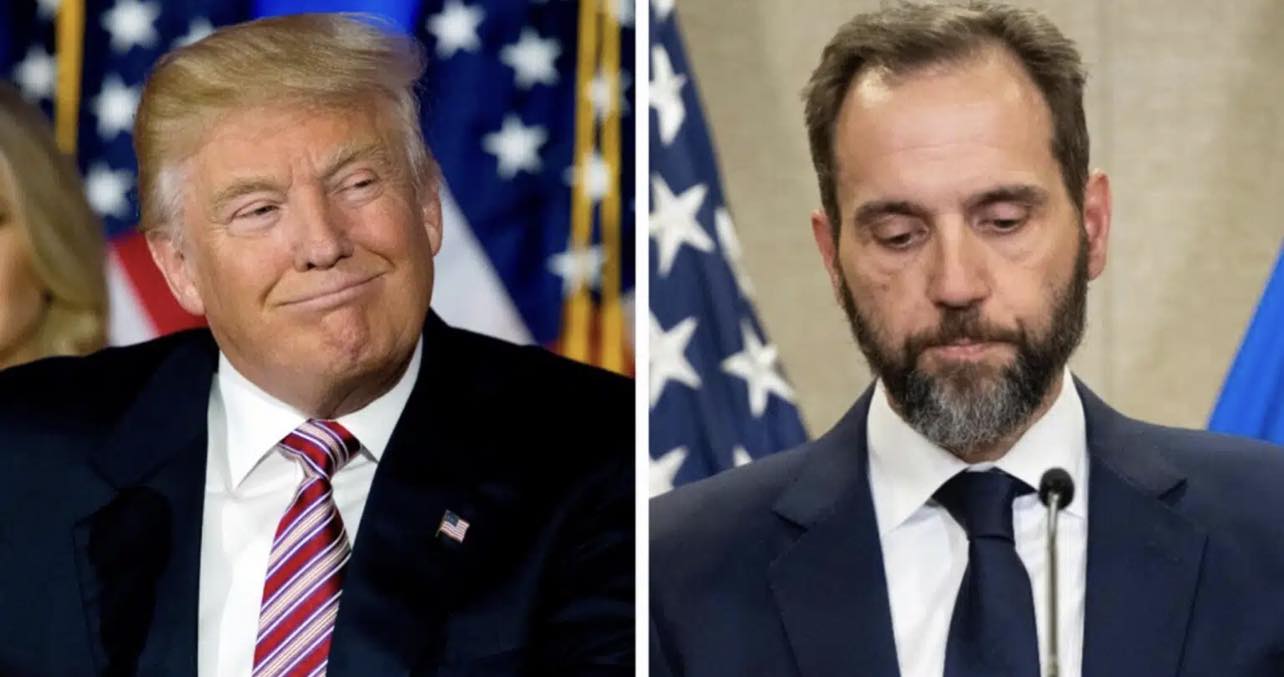Attempts by Special Counsel Jack Smith to access the confiscated cell phone data of Pennsylvania Republican Rep. Scott Perry, a supposed key player in former President Donald Trump’s alleged effort to rig the 2020 presidential election, have been partially thwarted by a federal appeals court panel.
A three-judge panel of the D.C. Circuit Court of Appeals overturned a portion of a lower court decision that would have permitted Smith’s prosecutors to access most of the information they sought from Perry’s phone in a decision that was made under seal.
“The FBI seized the device from Perry in August 2022, under a court-authorized search warrant, but has yet to access relevant documents and communications after Perry moved to prevent it, citing his legal privileges as a federal lawmaker and the authority of Congress to be free of interference from the executive branch,” Politico reported.
“The dispute began before Attorney General Merrick Garland named Smith as a special counsel last November but appears to have continued on under Smith’s auspices after he took over ongoing investigations into interference with the certification of the 2020 election results,” the outlet added.
However, the ruling might not be final given the U.S. Supreme Court or the entire bench of the appeals court could review the decision.
The criminal trial of former Trump aide Peter Navarro was in court on Tuesday morning, and Perry’s attorneys were seen reading the decision shortly after it was announced. The attorneys seemed pleased with the outcome even though they would not discuss the specifics.
Perry and the House of Representatives, which expressed concern about prosecutors’ attempt to access a member of Congress’ phone, can both look at the new ruling as a significant victory.
Although the appeals court’s 29-page ruling is still confidential, the three-judge panel said in the court’s docket on Tuesday that it had partially disagreed with U.S. District Court Judge Beryl Howell’s decision to grant prosecutors access to the majority of the files taken from Perry’s phone while blocking only a small number that she deemed beyond the reach of federal investigators.
The appeals court’s main opinion was written by Judge Neomi Rao, a Trump appointee, and Judge Karen LeCraft Henderson, a George H.W. Bush nominee. Another Trump appointee, Judge Greg Katsas, submitted a six-page concurring opinion. Since the judges’ opinions are still confidential, it was difficult to determine the specifics of any disagreements among them.
The “speech or debate” clause of the Constitution, which exempts members of Congress from criminal prosecution for offenses related to their official duties, was in question as to how the courts should interpret it.
According to Perry, the majority of the information sought by Smith’s team is shielded by this constitutional clause and should be off-limits to law enforcement.
Howell disagreed, claiming that Perry’s independent efforts to look into election fraud — and to inform the executive branch of it — rendered those contacts immune from speech-or-debate restrictions.
The D.C. Circuit panel gave Perry’s attorneys and the prosecution a week to respond to its order, which was made public on Tuesday, and state whether they believed any parts of the rulings should be kept secret.
The opinion of the appeals court is so serious that it will more than likely be closely examined on Capitol Hill because any interpretation of the speech-or-debate clause has significant ramifications for lawmakers.
“House Democrats and Republicans joined together to intervene in Perry’s case — even without knowing the details of what prosecutors were seeking from Perry — to argue against any sweeping new rulings that would weaken speech-or-debate protections for lawmakers. The House’s friend-of-the-court brief in the case remains under seal,” Politico noted in its report.

